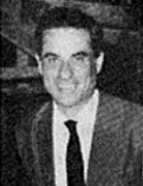

This is why one cannot write about Portuguese travel literature at the time of the great discoveries without taking into account the analyses he made and the conclusions he drew. ( À la recherche … [In research of] , 1983, pp. 3-14). Even when they may seem excessive due to the critical apparatus that he did not conceal. An example is the problem of Duarte Pacheco Pereira ’ s date of birth, which nobody knows and whose hypotheses do not even vary much: JBC cites eight authors and their respective proposals, which adds nothing to the work ( À la recherche …[In research of], p. 24). And there is often an exaggeration in the length of information, indulging in a kind of game by pretending to be exhaustive. With good, reliable erudition, always. This is why the account of the voyage of 1498 is exemplary in its thoroughness and length (31 pp.). For JBC , there was no doubt that Duarte Pacheco Pereira was responsible for finding a section of the coast of the new continent, in what would become Brazil, in 1498. Cabral is credited with the ‘official’ recognition.
The heterogeneity of Portuguese travel literature at the time of the great discoveries is well demonstrated, and this characteristic opens up an extensive range of non-convergent possibilities that need to be investigated. Here , we find ‘new men, of a temperament developed in another social and mental climate, with other interests, having another scale of values to judge things and events’ ( À la recherche … [In research of] , p. 274). This whole thing must be appreciated , and we must look for that originality and modernity that is at the centre of the research carried out. With some remarkable contributions, not just from the history of culture/history of mentalities, but from the survey and critical fixation of duly verified texts. With philological accuracy that could not fail to be exercised. A good example is the long passage on the Crónica dos feitos de Guiné [Chronicle of Guinea’s achievements] ( À la recherche …[In research of], pp. 300-322). Only after this did he move on to Esmeraldo , enquiring about the sources that Duarte Pacheco Pereira might have used to write it. This was a subject and a critical study that he analysed countless times as if to show how difficult it was to achieve the accurate result he had set out to achieve. Only after these in-depth analyses does he go into the central subject of the work, which is precisely the search for the specificity of Portuguese expansion. For this purpose, he analyses language and discourse, using the history of words and the semantics that underlie them: take the examples of ‘discover’ and ‘discovery’.
This work is financed by national funds through FCT - Foundation for Science and Technology, I.P, in the scope of the projects UIDB/04311/2020 and UIDP/04311/2020.
